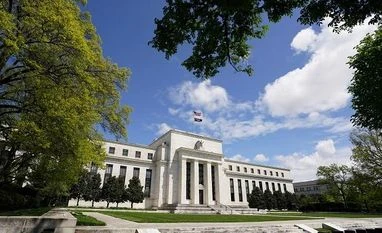By Doina Chiacu and Ann Saphir
WASHINGTON (Reuters) - The path to the Federal Reserve for President Donald Trump's controversial nominee Judy Shelton narrowed Tuesday after the Senate blocked a key procedural vote and a Republican senator who was one of her supporters said he came down with the coronavirus.
Iowa's Chuck Grassley, 87, said on Tuesday he has tested positive, adding in a tweet that he feels good and plans to work from home.
He had been quarantining at home as he awaited the test result, while Florida Senator Rick Scott has been quarantining since the weekend.
Their absence was one reason the Republican-controlled Senate earlier on Tuesday was unable to muster the votes to force an end to debate on her nomination, a key step before a confirmation vote.
Also to blame were the "no" votes of a couple of Republicans worried that Shelton, a former economic adviser to Trump's 2016 presidential campaign, could imperil the independence of the powerful interest-rate setting institution.
More From This Section
The Fed has aggressively eased monetary policy using measures Shelton previously called "extreme" to cushion the downturn caused by coronavirus crisis and its economic fallout.
Trump's Republican Party has a 53-47 majority in the current Senate, but so-called cloture vote was 47-50, with Senate Majority Leader Mitch McConnell voting "no" to preserve the option to reconsider Shelton's nomination later.
The hope is for a re-do when Grassley and Scott return to the Senate floor.
A successful vote could require careful timing.
Republican Senator Lamar Alexander, who opposes Shelton's nomination, is out of Washington this week but could cast a vote if one takes place when he is back.
Newly elected Democratic Senator Mark Kelly is eligible to take the oath of office as soon as Arizona certifies its election results, which is scheduled for Nov. 30. He expects to take office in early December.
Quarantines for COVID-19 typically last 14 days, meaning Grassley and Scott could be back at the Senate by then, health permitting.
Shelton, 66, has come under fire for inconsistent, controversial views, including an embrace of the gold standard and a shifting stance on interest rates as control of the White House passed from Democrat Barack Obama to Trump.
Shelton told lawmakers in her previous February confirmation hearing that "no one tells me what to do."
Supporters praise an out-of-the-box thinker who they say can shake up an institution they view as being dominated by "groupthink" because of its consensus-driving decision-making style.
The vote on Shelton marks the first time since the establishment of modern Fed governance in 1935 that Congress has voted on a Fed nominee during a lame duck session.
SHELTON'S VIEWS
Beyond setting monetary policy, the Fed's Board of Governors are responsible for a range of other tasks including decisions on bank supervision and, importantly at this junction, emergency lending programs like the ones the Fed has launched to help backstop and extend credit to coronavirus-hit businesses and local governments.
Shelton has argued the nation would be better off returning to the gold standard, and as recently as 2017 criticized the Fed's power over money and financial markets as "quite unhealthy."
During her Senate confirmation process, she called the Fed's bond buying and zero interest rates in the last crisis "extreme."
Her views on rates have moved in lockstep with Trump's. She lambasted easy money before his presidency, but supported it after he took office, and has expressed skepticism over the Fed's need to set policy independently from the president and Congress.
Formerly U.S. executive director for the European Bank for Reconstruction and Development, Shelton was also a co-director of the Sound Money Project, part of the libertarian American Institute for Economic Research.
Her skepticism about the role of the Fed was part of the appeal for some Republicans voting "yes" on Tuesday.
"The Federal Reserve plays too much of a role shaping our economy," Marco Rubio, a Republican senator from Florida, said in a statement after the vote. He added that he thinks Shelton shares his belief "that relying on the Federal Reserve to boost asset prices is no substitute for a strong American economy."
Democrats voting against Shelton expressed concern over her lack of knowledge about the banking system. Shelton's unfamiliarity with capital requirements and other protections against losses means it would be "imprudent" to appoint her to the Federal Reserve Board, Massachusetts Senator Elizabeth Warren said on Twitter on Tuesday afternoon, "especially during this crisis."
Other Trump picks for the central bank have faltered earlier in the process, including former Republican presidential candidate Herman Cain and economic adviser Stephen Moore.
Whether Shelton is ultimately confirmed or not, Trump will have put his mark on the Fed. He has nominated all but one of its board's current five members.
The White House expressed confidence Shelton would be confirmed eventually, with spokesman Judd Deere tweeting she is "incredibly qualified," and adding, "The @WhiteHouse fully supports her."
(Reporting by Patricia Zengerle, Doina Chiacu, Rick Cowan, David Morgan, Andrea Shalal; writing by Ann Saphir; editing by Jonathan Oatis, Edward Tobin, Tom Brown and Aurora Ellis)
)